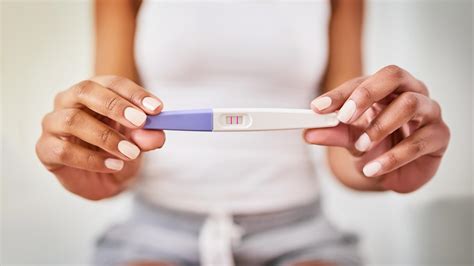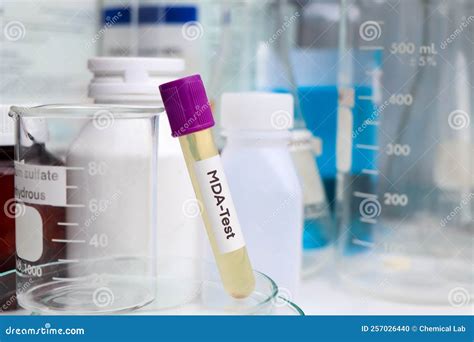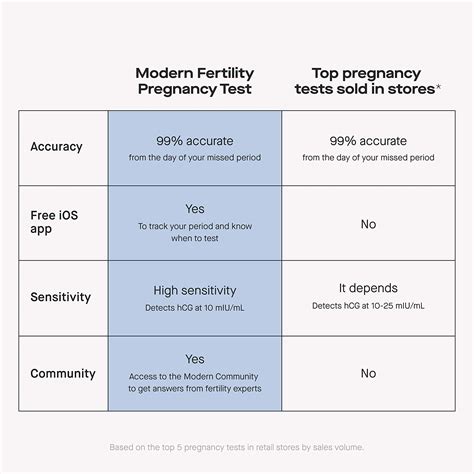Intro
Discover the 5 common reasons behind a negative Clear Blue test result. Learn how factors like ovulation timing, test sensitivity, and hormone levels can impact accuracy. Understand the role of fertility windows, menstrual cycles, and false negatives in getting an incorrect result. Get insider knowledge to optimize your testing experience.
A Clear Blue pregnancy test is one of the most popular and reliable home pregnancy tests available. However, like any medical test, it's not 100% accurate, and there are instances where a negative result may not be entirely accurate. Here are five reasons why you may get a negative Clear Blue test result when you're actually pregnant:

1. Low hCG Levels
The Clear Blue pregnancy test detects the presence of human chorionic gonadotropin (hCG) in your urine, which is produced by the placenta shortly after implantation. However, if your hCG levels are low, the test may not be able to detect them, resulting in a false negative. This can happen if you're testing too early or if you're not producing enough hCG.
What affects hCG levels?
Several factors can influence hCG levels, including:
- The timing of implantation: hCG levels may be lower if implantation occurs later than usual.
- The sensitivity of the test: different tests have varying levels of sensitivity, and some may not detect low levels of hCG.
- Your body's production of hCG: some women naturally produce lower levels of hCG than others.
2. Testing Too Early
Testing too early is one of the most common reasons for a false negative result. If you take the test before your period is due, the levels of hCG in your urine may not be high enough to be detected. It's essential to wait until after your period is due to ensure accurate results.

When to test for pregnancy?
The American Pregnancy Association recommends waiting until after your period is due to take a pregnancy test. If you can't wait that long, it's best to take a test in the morning, when hCG levels are typically highest.
3. Diluted Urine
Drinking too much water or taking the test at the wrong time of day can dilute your urine, making it harder for the test to detect hCG. If your urine is too diluted, the test may not be able to detect the hormone, resulting in a false negative.
How to avoid diluted urine?
To avoid diluted urine, try to:
- Take the test in the morning, when your urine is most concentrated.
- Avoid drinking too much water before taking the test.
- Try to hold your urine for at least an hour before taking the test.

4. Certain Medical Conditions
Certain medical conditions, such as polycystic ovary syndrome (PCOS) or kidney disease, can affect hCG levels or the accuracy of the test. If you have a medical condition, it's essential to talk to your doctor about the best way to test for pregnancy.
How do medical conditions affect pregnancy tests?
Some medical conditions can affect the accuracy of pregnancy tests, including:
- PCOS: women with PCOS may have higher levels of hCG, which can lead to false positives.
- Kidney disease: women with kidney disease may have lower levels of hCG, which can lead to false negatives.
5. Test Sensitivity
The sensitivity of the test can also affect the accuracy of the results. Some tests are more sensitive than others and can detect lower levels of hCG. If you're using a less sensitive test, you may get a false negative result.

What to do if you get a negative result?
If you get a negative result and still suspect you're pregnant, try the following:
- Wait a few days and take another test.
- Use a more sensitive test.
- Talk to your doctor about your symptoms and medical history.
What is the accuracy of Clear Blue pregnancy tests?
+Clear Blue pregnancy tests are 99% accurate when used correctly and on the day of your expected period.
Can I get a false negative result if I'm taking fertility medications?
+Yes, fertility medications can affect the accuracy of pregnancy tests. Talk to your doctor about the best way to test for pregnancy if you're taking fertility medications.
What should I do if I get a negative result and still suspect I'm pregnant?
+Wait a few days and take another test, use a more sensitive test, or talk to your doctor about your symptoms and medical history.
If you're trying to get pregnant or suspect you may be pregnant, it's essential to understand the potential reasons for a negative Clear Blue test result. By waiting until after your period is due, using a sensitive test, and avoiding diluted urine, you can increase the accuracy of the results. If you're still unsure, talk to your doctor about your symptoms and medical history.
